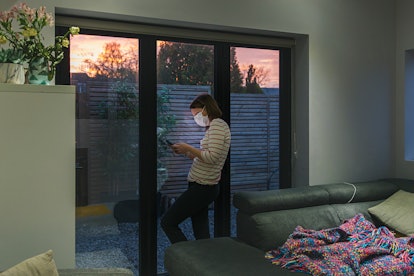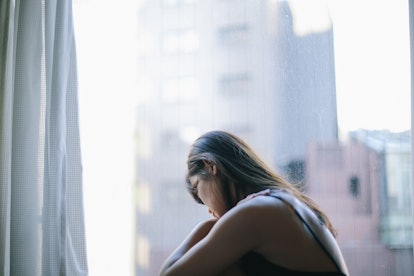On June 23, Prime Minister Boris Johnson announced plans to ease lockdown restrictions, including the reopening of pubs, restaurants, and hairdressers from July 4 onwards. While this is great news to many, for some it’s a little daunting. The new “normal” of staying home, controlling the virus, and saving lives has become ingrained in our consciousness for almost three months now, and dealing with re-entry anxiety as lockdown eases is likely to become an issue for many across the UK.
Data collected by market research company Ipsos Mori in early May suggested that two-thirds (67%) of Brits felt “uncomfortable going to large public gatherings, such as sports or music events, compared to how they felt before the virus.” And following the events at Bournemouth Beach last week (June 25), it’s not surprising that people are beginning to feel stressed.
When I (a healthy twenty something free from underlying conditions) scroll through Twitter and see thousands congregating with little to no social distancing, my stomach ties itself in knots, so I can’t imagine how people who are still self-isolating, shielding, or strictly adhering to social distancing measures must be feeling. Add that to the uncertainty surrounding local lockdowns, and what that means for the future of the UK’s COVID response, and things looks even more bleak.

Describing the effects of “re-entry anxiety,” consultant psychologist Marc Hekster told The Independent: “It’s the fear of the unknown and the loss of this period of safety created by the enforced lockdown into our homes.” He continued: “Lockdown has created an artificial sense of security about the world. We have been protected from the virus and perhaps also protected from complicated family circumstances, family conflicts, and other external issues.”
So, if you’re experiencing re-entry anxiety, what can you do to combat it? Psychologist and cognitive behaviour therapist Vickie Norris, who specialises in anxiety, tells me that while it’s going to be “challenging” to “face other people in the outside world,” there are plenty of coping mechanisms to try if you’re feeling especially worried. Here are five from Norris to get you started.
1. Take it steady, don’t take too much on too soon. Whether that’s going back to work or venturing out to non-essential shops, taking it one step at a time is better than overwhelming yourself all at once.
2. Work on building yourself up in stages progressively, taking on greater challenges to expose yourself to others and the outside world. Like making the transition from popping out to your local coffee shop for five minutes to meeting up with friends for half an hour.

3. Don’t rely on a crutch such as alcohol or a helping hand in the short-term — this might feel like it will help at the time, but could well backfire. Invest in your mental health and the support of others, whether that’s through continuing with nightly Zoom calls or a relaxing meditation routine.
4. Challenge any negative thoughts you may have about the situations you’re planning to get yourself into. It’s hard not to think of threats of the virus all the time, but as long as you adhere to current social distancing and hygiene rules, give yourself a break and try to think more positively.
5. Give yourself a reward to look forward to afterwards. Whether that’s a cheeky nap or a great TV show, having something to look forward to when you get home will help relieve stress and tension while you’re out and about in the world.
And, of course, if your anxiety becomes too much to bear, it could be worth getting in touch with your GP or seeking professional help. And don’t forget that Mind UK has a helpline that is open 9 a.m. to 6 p.m., Monday to Friday (except bank holidays) for anyone really struggling with their mental health.



